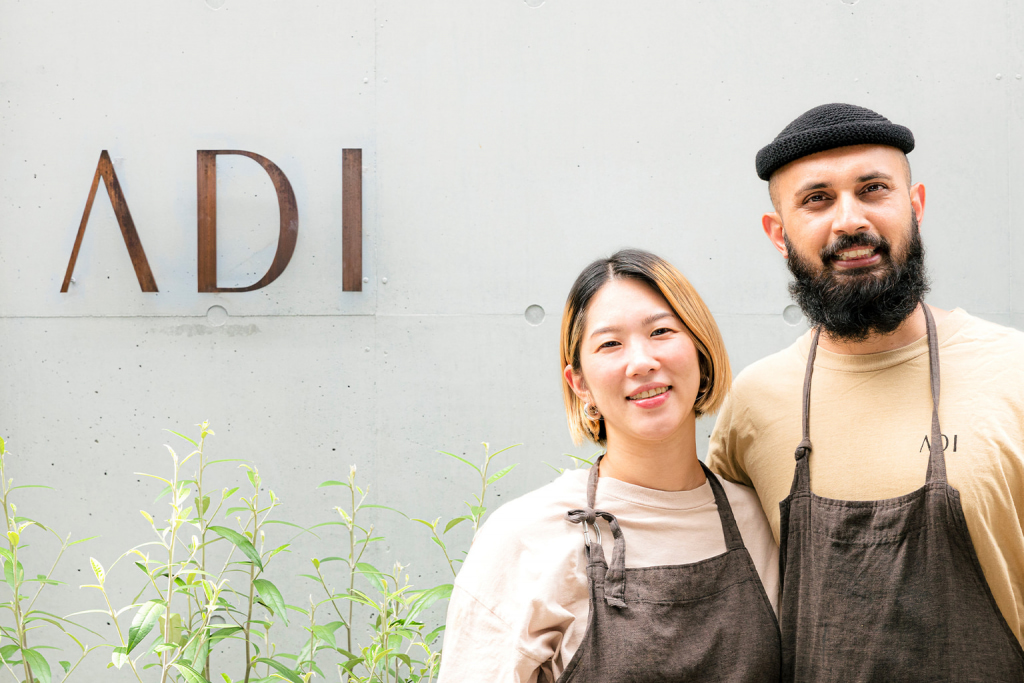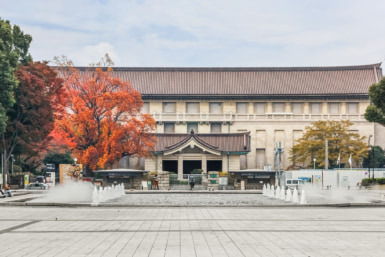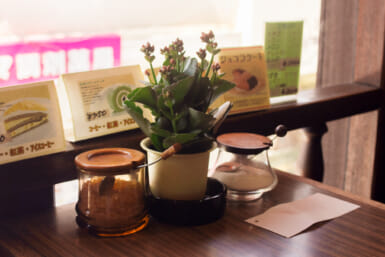Next to the train tracks in the heart of Nakameguro lies a small, tranquil piece of Nepal consisting of the modern Nepalese restaurant Adi and the teahouse Chiya-ba. These are the creations of Kanchan and Asumi Adhikari, a passionate couple on a mission to show Tokyo the true Nepal.
Kanchan, a Nepal native, and Yokohama-raised Asumi never intended to work side by side. But the couple is not afraid to listen to their gut when things feel right, whether that leads to marriage after 10 months of seeing each other or to starting a business together. So, after running a successful crowdfunding campaign and a curry pop-up shop, the two decided to open a restaurant.
In January 2020, plans were in motion – and then the pandemic started. They moved ahead with Adi despite the extra challenges, making adjustments, like offering takeout, as required.
Bolstered by a strong belief in their vision, they have overcome setbacks to create a successful, well-loved business in the competitive Tokyo food scene. Their achievements can at least partially be attributed to how well they complement each other.
“Kanchan has such an abundance of creativity, so many ideas and seeds that I’m then able to visualize and cultivate into a narrative and a concept. We have found a formula where we can utilize both of our strengths – and the sum of them being more together,” Asumi says.
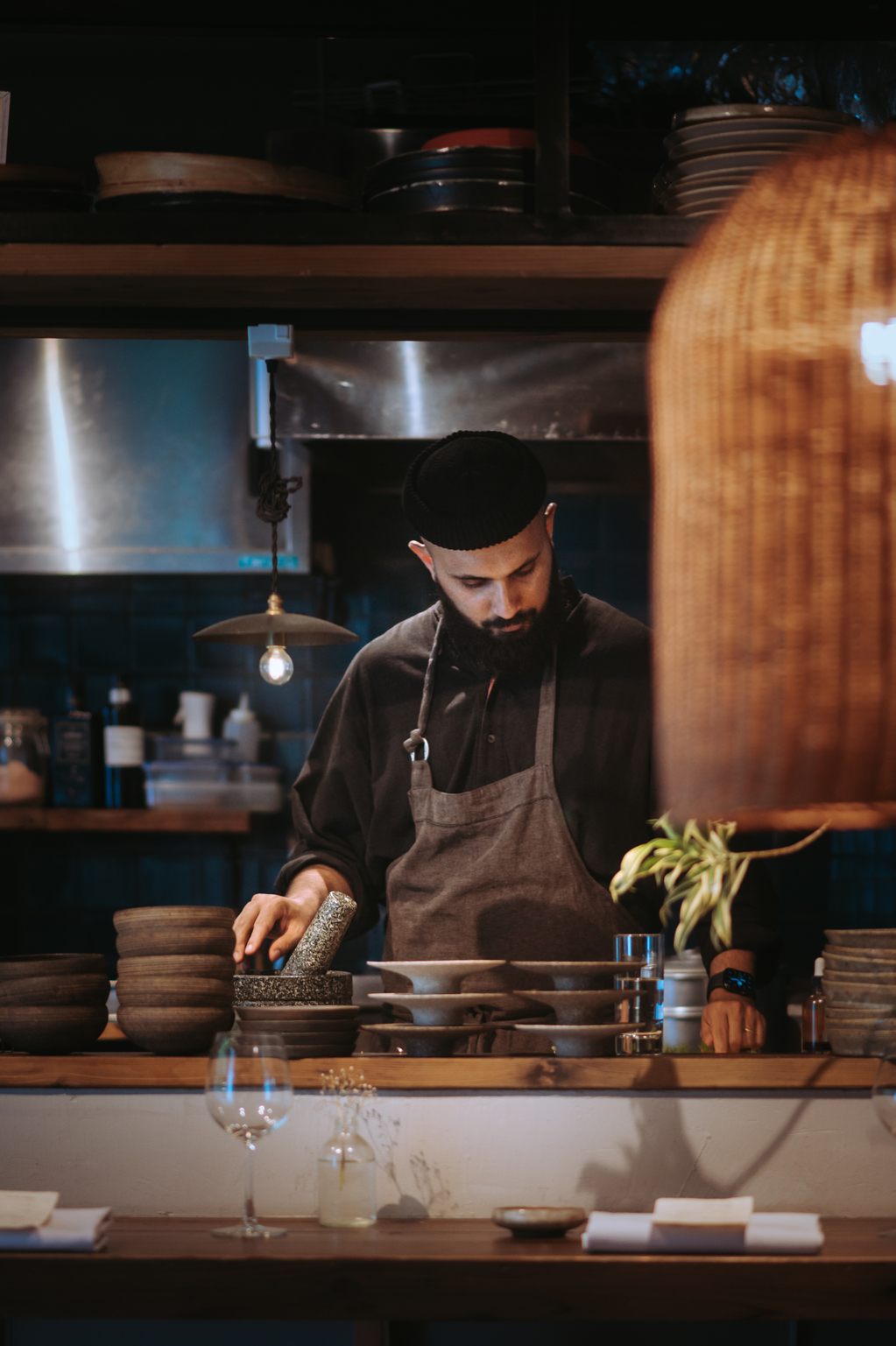
The Self-taught Chef
Kanchan has no formal training in cooking; he fell into the profession when the chef at his curry pop-up shop had to quit. But he makes up for his lack of training with a strong drive, a humble willingness to learn and an endless curiosity – not to mention advice from his mother in Nepal and a lot of YouTube.
“The beginning was very difficult. It was a challenge to incorporate Japanese ingredients into my Nepalese cuisine. … But I got a lot of help and advice from my producers,” Kanchan says.
In 2021, Kanchan interned for a few weeks in Shizuoka with fishmongers and at a local restaurant, returning to Tokyo with newly perfected fish-handling skills and plenty of inspiration.
“After my experience in Shizuoka, I changed my cooking style, deciding the menu daily based on what we have gotten that day and letting the produce lead us,” he explains. “I think the lack of formal training, and even the lack of long experience, can also be advantageous. I’m free to create and do not feel the need to follow any rules. Sometimes not knowing can be beneficial.”
This freedom shows up at Adi in the form of new and unique combinations. Kanchan seems to always be evolving, immediately incorporating his learnings into the dishes.
“My cooking philosophy is more than just going back to the roots of the local recipes and methods. It is to recognize the ways of both Nepal and Japan, reconsider ingredients in a completely new way and build bridges between the two cultures. That’s how you keep the traditions alive, interpret them in a modern way.”
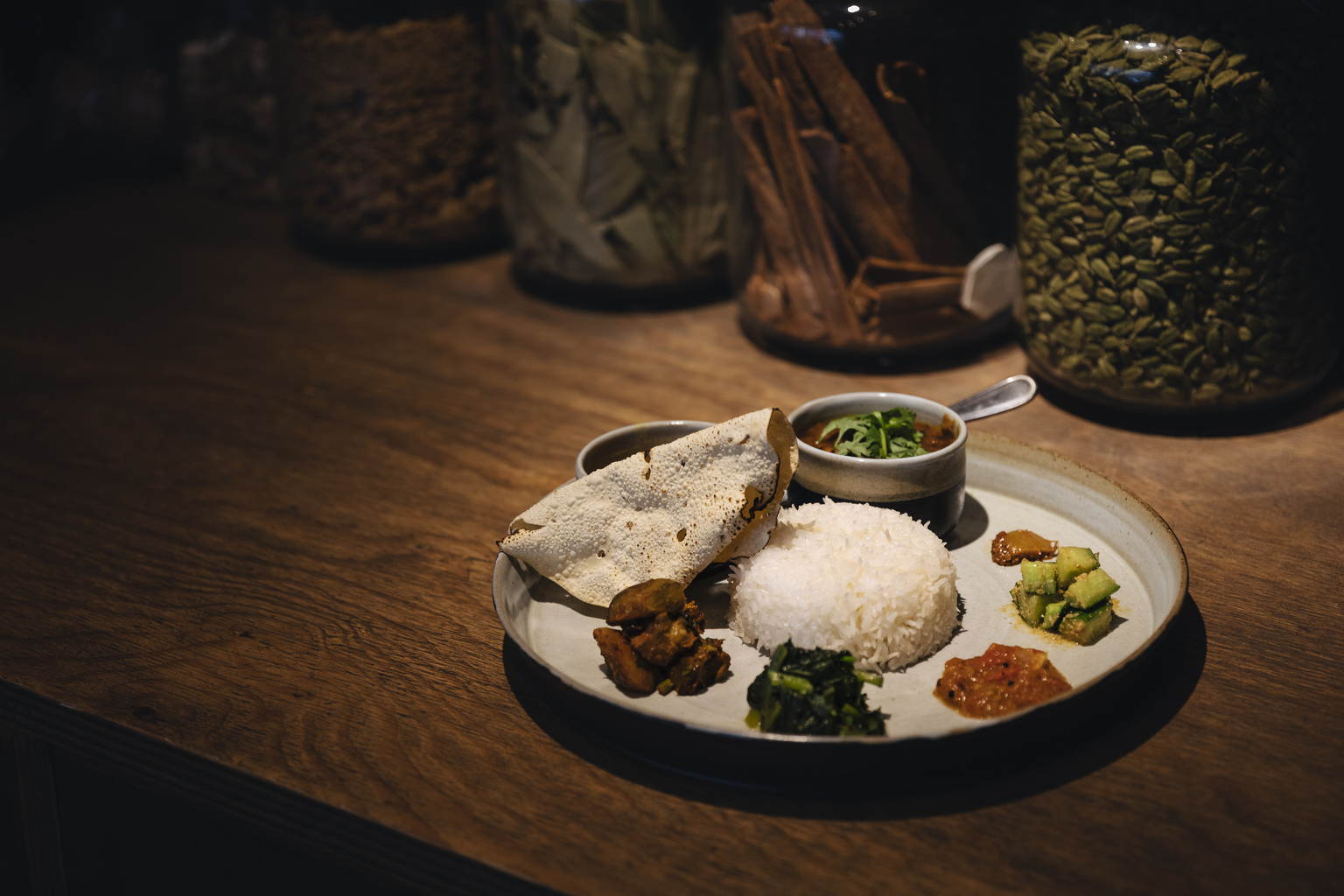
A Unique Take on Nepalese Cuisine
“Adi,” Sanskrit for “beginning,” is a fitting name for the first step of Asumi and Kanchan’s ever-growing journey. The restaurant offers lunch on weekdays and weekends as well as an evening omakase tasting course.
“Modern cuisine nowadays often focuses a lot on the art and the beauty of the food. In Nepal and in the Himalayas, food has always been a way to survive, to nourish, and I’ve wanted to incorporate this into my cooking,” Kanchan says.
But there’s no lack of beauty when eating at Adi. The lunch plates of dal bhat are vibrant and packed with flavor, with condiments evoking new taste sensations. The condiments are another of the couple’s creations, produced for their Jiunu by Adi lifestyle brand.
The evening omakase tasting course, combined with a well-curated selection of natural wines, is unique. Kanchan’s interpretation of traditions, along with his knowledge of Japanese ingredients, results in dishes boasting a range of new tastes and flavors.
“I want to send people on a journey through my dishes, with delicious, nourishing food that is healthy from the inside out,” he says.
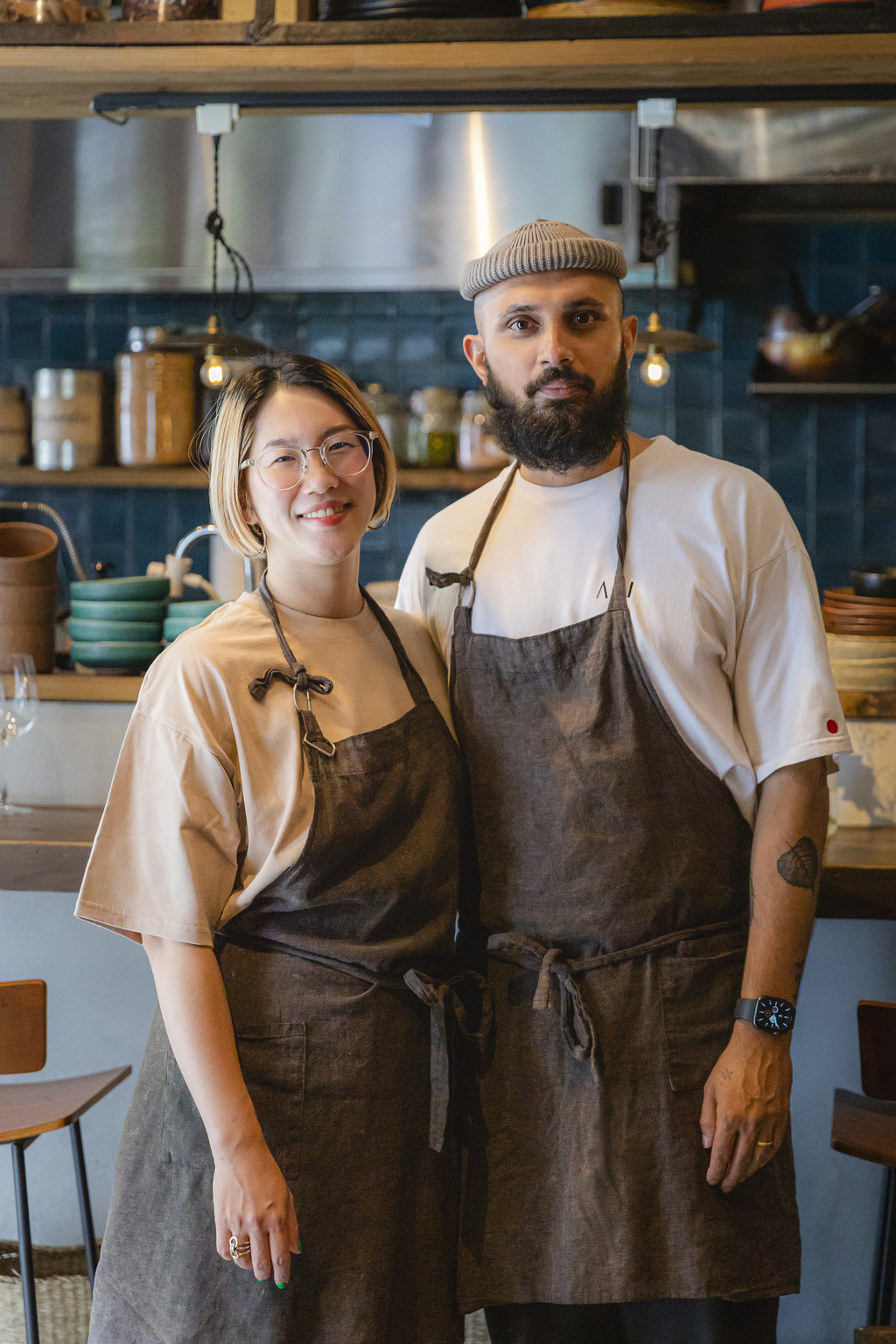
Cultivating Connections
Kanchan’s philosophy also appeals to food professionals. In just a few years, he has built an impressive network of chefs and producers, many admiring his way of cooking – and many also inspired and using the Jiunu by Adi spices in their food. The inspiration goes both ways, with Kanchan crediting the community around him for much of what he’s learned.
Inspiration also comes from Nepal, and Kanchan is an avid student of his own culture. While the pandemic has prevented Kanchan and Asumi from traveling, they want to visit and study Nepal more, and to fulfill their vision.
“There are still so many things we can do with Adi. We are already using spices from Nepal, but we also want to introduce Nepalese ingredients into the dishes,” Asumi explains.
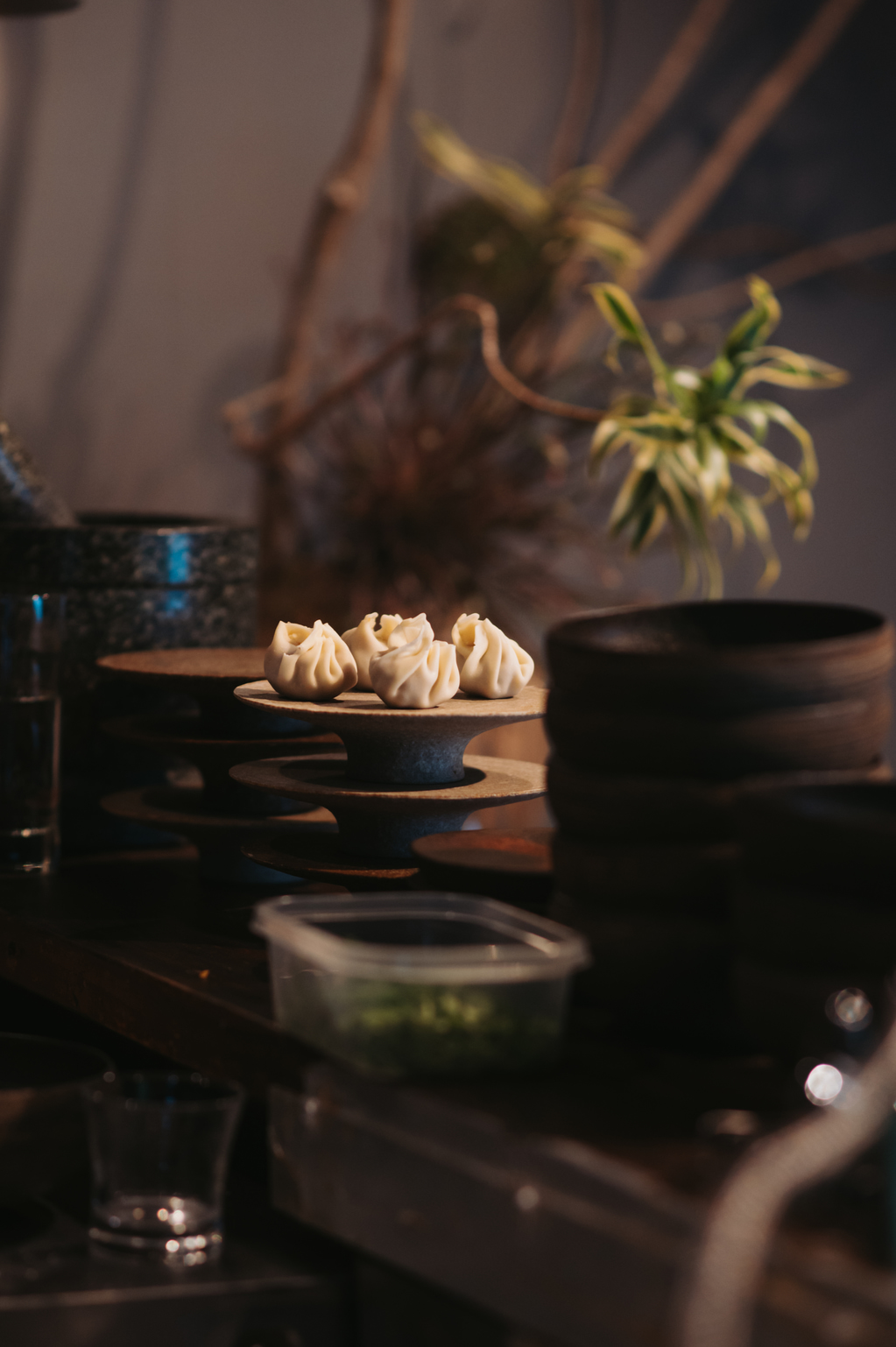
Natural Growth
In addition to a food-related community, Kanchan and Asumi have cultivated a creative community from the worlds of fashion, design and art that supports their vision to show the Nepalese culture holistically.
Each part of the vision has grown naturally. Their T-shirts, for example, developed from artwork inspired by the restaurant and created by an artist friend. That then evolved into clothing with other friends from the fashion industry.
“We jump into our projects when we feel they come to us naturally and we feel a true purpose with them. We need to feel free. If we must push or force it, it doesn’t work – and it’s not meant to be,” Asumi says.
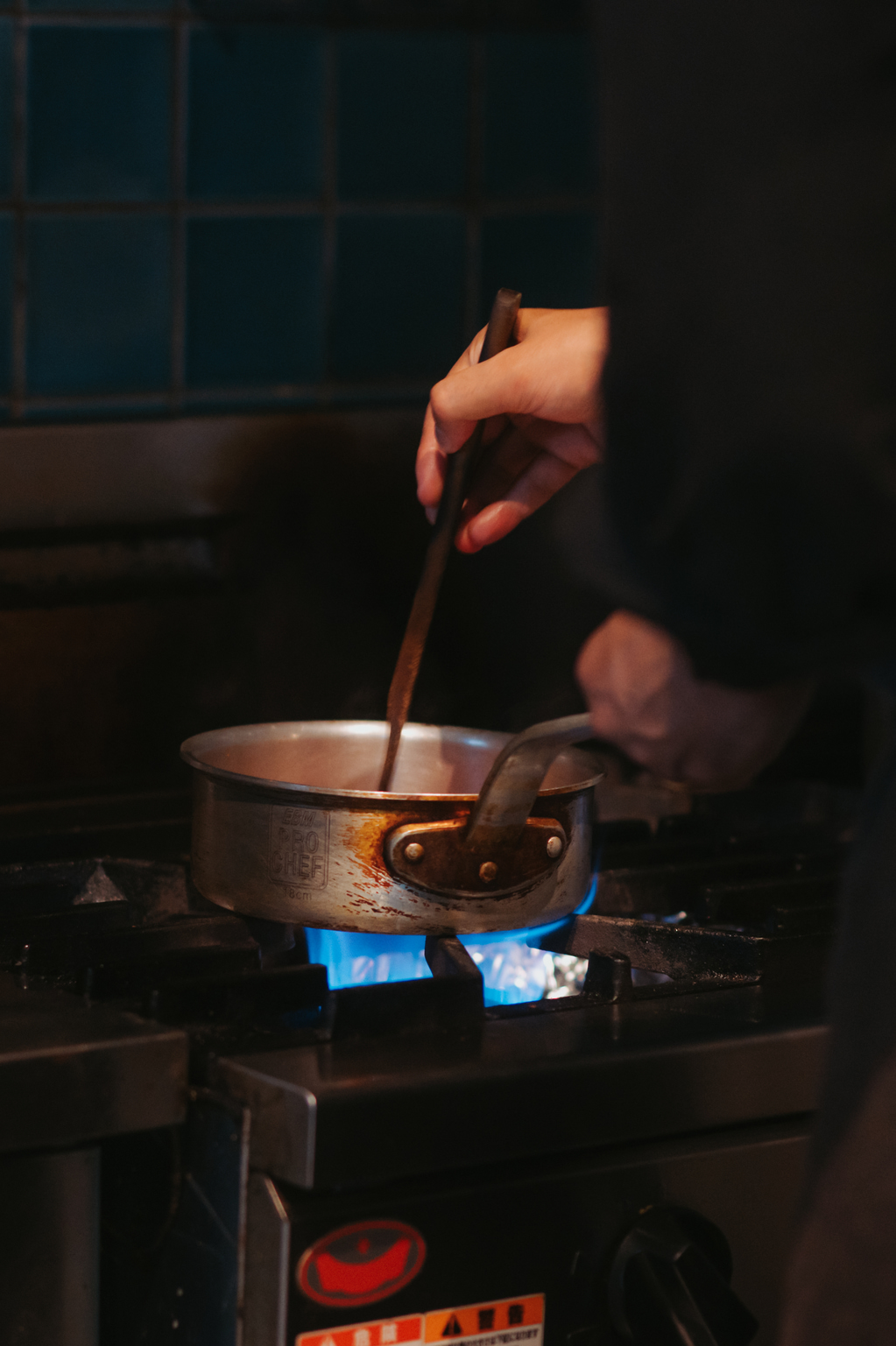
Freedom and Comfort
Chiya-ba, Kanchan and Asumi’s café, opened in March 2022 next door to Adi. The teahouse serves chai teas and tea breads, and was built with the community in mind.
“With Chiya-ba, we wanted to offer the Adi experience but attainable for everyone,” Asumi explains. “The goal was not to maximize the number of seats, but to create an inviting space where people can stop for a peaceful moment, and if they feel like doing so, exchange thoughts with others.”
The café’s name is a combination of the Nepalese word for tea (chiya) and the Japanese word for space (ba). It symbolizes the marriage of Japan and Nepal that is central to their journey, while the café itself provides a calm escape from fast-paced Tokyo.
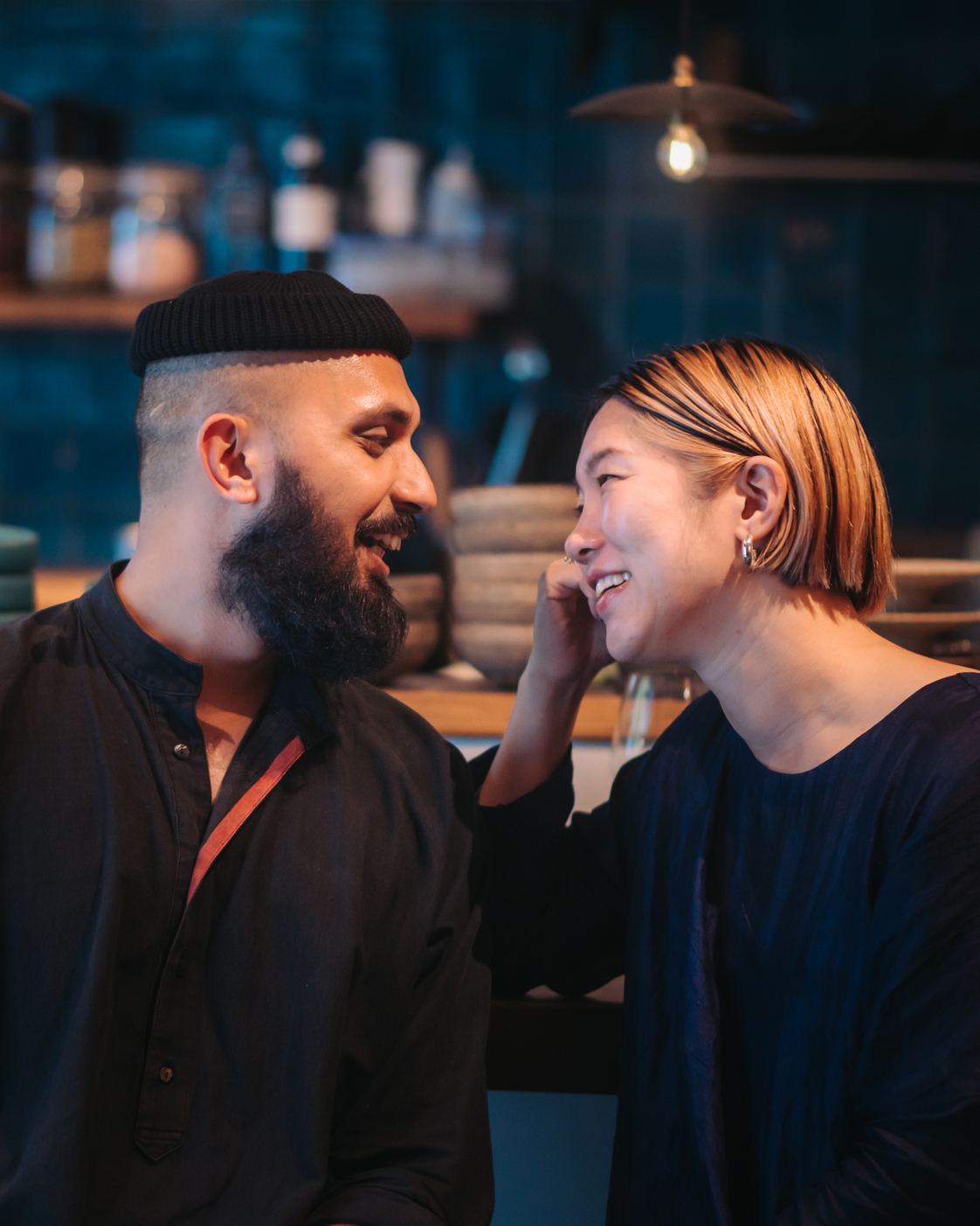
Community First
Asumi and Kanchan have built their business with community in mind, and the community has followed. The many customers from the first curry pop-up shop who are still loyal regulars and friends have been joined by Adi and Chiya-ba’s ever-growing group of fans.
It’s easy to see why people are enchanted by these places. The warm atmosphere, unique food and intriguing window into the Nepalese culture grasp you firmly and make you return again and again. The couple’s passion and kindness also seep through.
The core of it all is the relationship between Kanchan and Asumi. It’s their driving force and the source of their genuineness and vision. Kanchan and Asumi, along with their team, are never shy of a smile and excel at making you feel like you belong.
“We want our places to feel in the middle of the public and private space. We want people to have their independence and privacy but also feel they can stay for as long as they like and be comfortable,” Asumi explains.
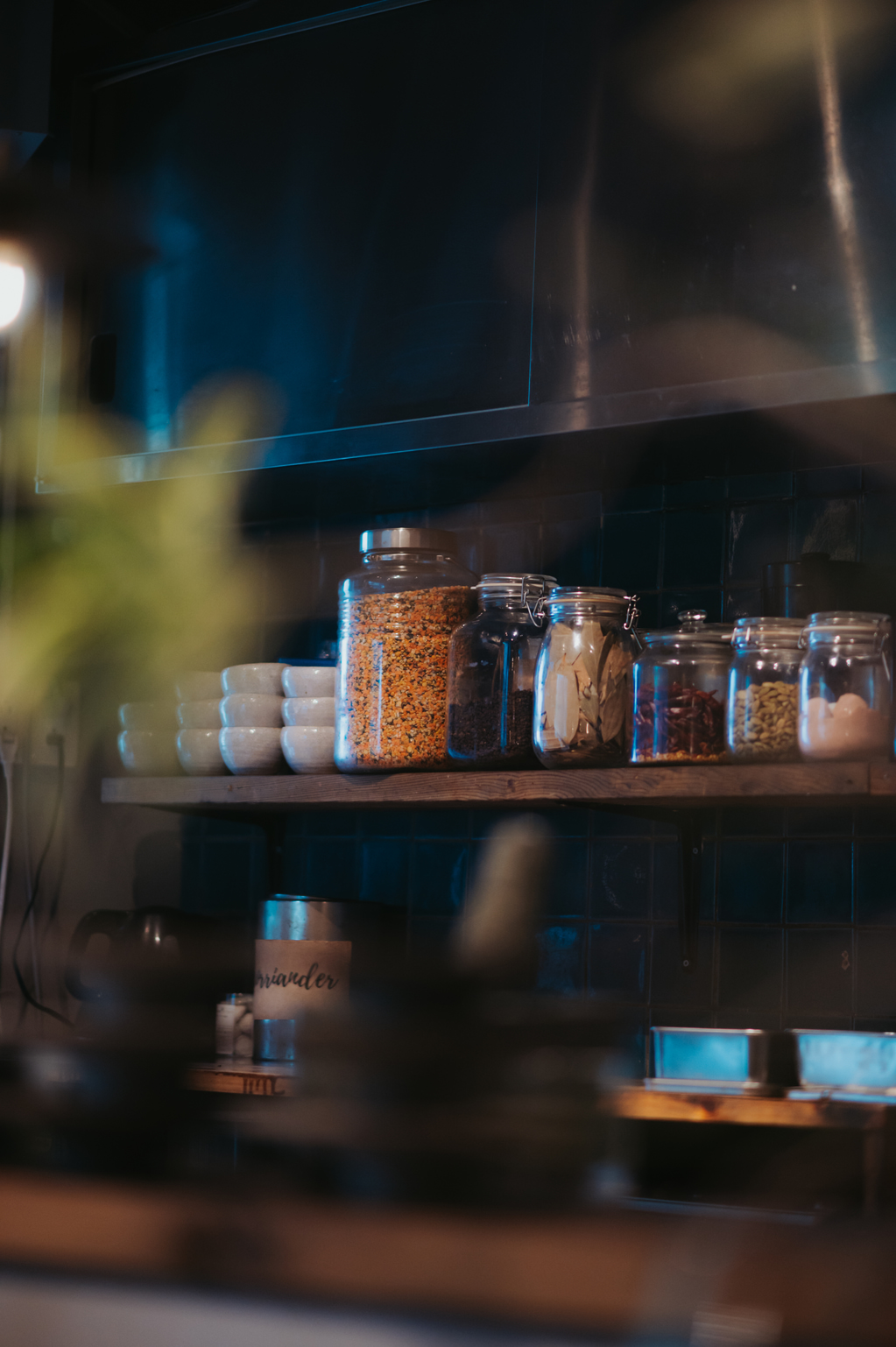
Nepal Ambassadors
Kanchan and Asumi also have a long-term plan: “In 15 years or so, we want to move to Nepal and build our purpose and community there. A place to showcase the culture of Nepal to locals and to people from all over the world.”
For now, the power couple is focusing on their mission to rebrand the Himalayan gem for Japan and to bring the Nepalese culture within reach of Tokyoites, all the while interpreting the traditions and culture in their own unique way.
| Location | |
| More Info |
Website →
0363885219 Closed on Mondays and Tuesdays |
Updated On August 18, 2023

